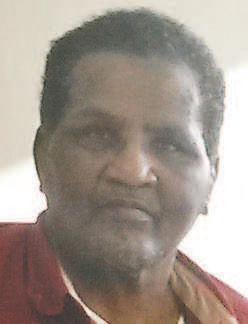
Widely shared shrimp picture a true fish tale
May 13, 2016
Isiah Goudy
May 17, 2016We live in complicated times, which require difficult decisions to be made about matters like security of public buildings.
In Terrebonne Parish, the struggle for a balance has been twofold. The Terrebonne Parish courthouse became subject to new and, in the minds of some, oppressive and inconvenient rules that most public officials have acknowledged went beyond what is necessary to ensure safety of the public and the people who work in the building and that corrections to the policy are in progress.
The requirement that purses and cell phones be barred from the building would appear more onerous than logic would dictate. Less restrictive measures would accomplish the same result, and officials acknowledge that they are tweaking the rules. We support the streamlining of the policy and are eager to see the less restrictive changes implemented.
There is, however, another access issue that bears addressing, and there are indications that the parish has done a poor job in both notice and execution.
A new policy at the Government Tower, a public building where meetings are held, and which residents visit to examine public documents and sometimes meet with officials, requires production of a governmentally-issued identification along with a requirement that a book be signed, noting in addition to name, destination and purpose, the person’s driver license number.
At the May 11 Parish Council meeting, Houma resident Lucretia McBride spoke about the security change at the Government Tower, addressing officials directly. To emphasize her point, McBride asked Parish President Gordon Dove to produce his license.
“Will you reach into your pocket and pull out your driver’s license and pass it over to me,” noting that she presumed it might contain personal information including any restrictions.
It was a grand-standing effort to be sure. Dove responded by saying he would not take part in what he characterized as a “charade.” But the point was punctuated by McBride’s assertion that a sign-in book with information taken from visitors that day was open and unattended, presenting the possibility that anyone could transcribe the information.
McBride said she objected to the lack of opportunity for members of the public to comment on any policy, and, in particular, that there was no ordinance spelling out the policy passed by the council, on which such comment could have been made.
Parish Attorney Julius Hebert — at the request of Parish Councilwoman Arlanda Williams — informed McBride that there was no question of the parish president’s authority to promulgate such a rule in the absence of an ordinance.
Knowing that the matter would be brought up during public comment, Hebert was armed with Attorney General opinions addressing the matter.
Williams also noted that she has had to produce her driver’s license at a Jefferson Parish government building, as well as at the State Capitol.
Noting McBride’s objections, Dove noted that a certified Houma police officer, in uniform, is the person assigned to checking visitor’s licenses.
That security, including metal detectors, which are set up but unused at the council meeting chamber, is needed and overdue cannot be denied. There is an open question as to whether the display of license and certainly the recording of its information, is needed or advisable. Some residents may wish to examine public records without presenting a driver’s license at the door, or may not be comfortable doing so for a variety of reasons.
While not a deal-breaker, this aspect of the policy should be examined before final plans are made. If the personal information breach occurred once it could certainly occur again. Is the retaining of driver’s license numbers necessary for security? We think not.
‘Too many times, over too many years, we have seen public officials… go along to get along.’







